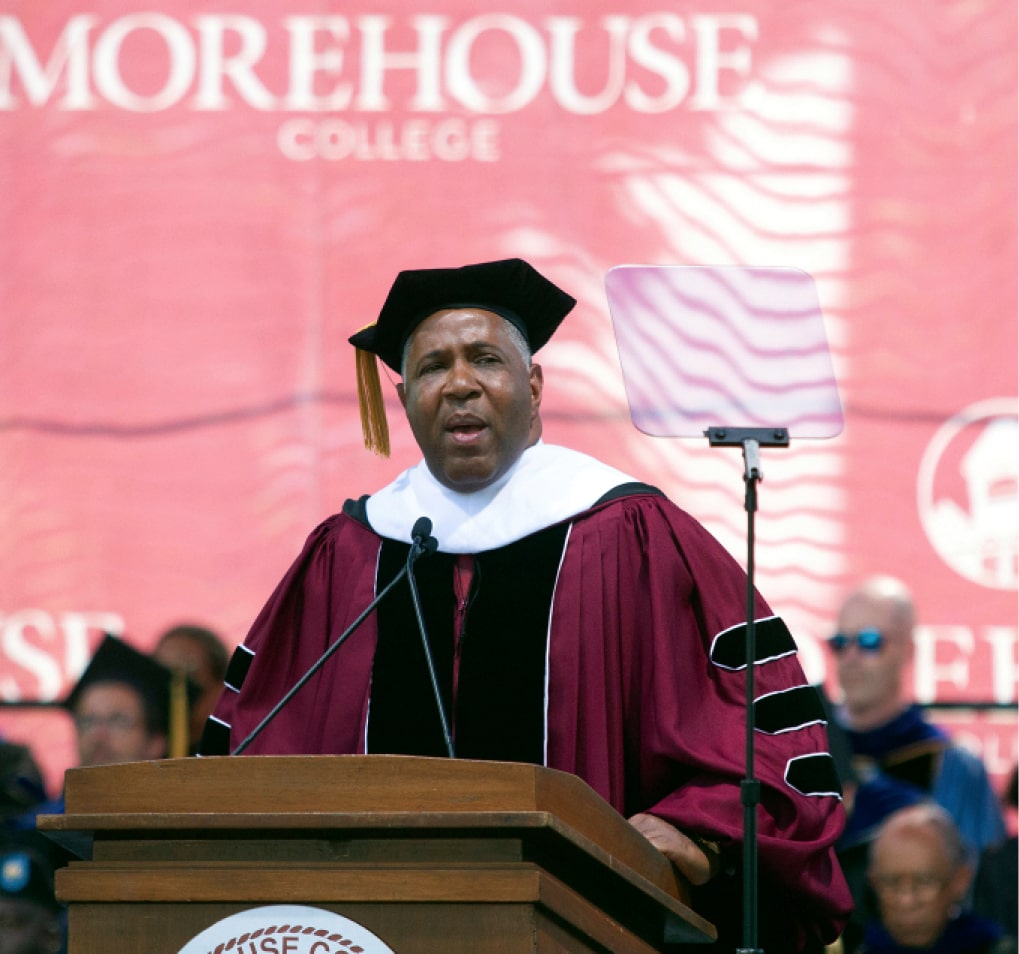Key Takeaways:
- DEI training is a form of professional development that organizations use to teach employees the skills and knowledge they need to contribute to an equitable work environment.
- There are many types of DEI training, including allyship training, unconscious bias training and bystander communication training.
- Periodically adjusting DEI training programs helps ensure that they continue to fit the evolving needs of employees and society.
In recent years, research has revealed that companies that embrace diversity, equity and inclusion (DEI) are more productive and successful. According to data reported by LinkedIn Learning, companies that prioritize diversity are 36% more likely to financially outperform their competitors. The data also shows that inclusive teams are more than 35% more productive.
Truthfully, these stats should come as no surprise. When people with different identities and backgrounds come together to collaborate, it creates a healthy work environment ripe with possibilities for innovation and growth.
To foster this type of environment, companies need to implement comprehensive DEI initiatives and training. Ahead, we answer questions like “What is DEI training?” In addition, we cover different types of DEI training, topics to include in DEI training, why this training is important and what makes DEI training programs successful.
What Is DEI Training?
DEI training is instruction that organizations implement to provide employees with the skills and knowledge they need to contribute to and sustain an equitable work environment. These trainings are designed to educate employees about critical DEI topics, such as unconscious and implicit biases, discrimination and inequities.
The goal of DEI training is to create a healthy work environment where employees can share their thoughts and respect each other’s differences. Ultimately, this type of environment will help employees feel equipped to achieve their full potential. To be effective, companies must understand that DEI and DEI training are not fleeting fads. DEI training should continue to be one element of a company’s overall DEI strategy to create a lasting, equitable work environment.
Types of DEI Training
Similar to the diverse backgrounds and experiences of an employee base, there are various types of DEI training. Each type of training serves a different purpose. Five of the most common types of DEI training focus on unconscious bias, allyship, bystander communications, hiring practices and skills-based diversity. Below, we discuss these five types of DEI training in more detail.
- Unconscious or implicit bias training: Unconscious (indirect) or implicit (direct) bias trainings are programs developed to teach people what bias is and how to understand any biases they may have regarding topics like race, gender or age. By helping participants recognize their biases, they better understand how to avoid making unfair decisions or judgments about others in the future.
- Allyship training: Allyship training is a type of program companies use to teach employees about the different challenges people from underrepresented communities face. If implemented successfully, this type of training provides employees with the tools they need to become effective allies. Being a good ally means recognizing opportunities to support and stand up for people from underrepresented communities in the workplace or society.
- Bystander communication training: Organizations use bystander communication training to educate employees on how to efficiently handle discriminatory situations, whether they occur in the workplace or other settings. Common issues this training prepares participants to address are harassment, discrimination or bullying.
- Hiring practices training: Businesses commonly require human resource professionals, specifically those in recruitment, to take DEI training to learn about fair hiring practices. This form of training educates those involved in the hiring process on how to make fair, unbiased and inclusive hiring decisions.
- Skills-based diversity training: Skills-based diversity training is a training approach that primarily focuses on helping participants develop interpersonal skills, such as communication and empathy. This type of training prepares people to form partnerships that help create a more equitable and seamless work environment.
Topics to Include in DEI Training
DEI is a complex subject, which is why there are many topics that companies can implement in their DEI training programs. To be truly effective, organizations should tailor their programs to fit their company culture and the unique challenges and needs of their workforce. Below are some of the key DEI training topics a company may want to include.
- Self-reflection: To initiate change, employees must pair their knowledge of DEI with self-reflection to understand any possible bias they may have. This action can help people understand their areas for improvement.
- Inclusive language: Words matter because the language we choose to use has the power to create connections or barriers. Inclusive language employs words that show respect for diversity and thoughtfulness about people’s unique differences. Inclusive language training is crucial because it can help encourage people to communicate in ways that make everyone feel comfortable and heard.
- Microaggressions: Microaggressions can be either implicit or explicit. They are the insults or snubs directed at individuals from marginalized communities. Including this topic in training will help people understand what microaggressions are and what they look like. Not only will this equip them to recognize their own biases, but it will also help them understand when to step in if they witness someone actively experiencing microaggressions.
- Historical context: People do not know what they do not know, which is why it is essential to incorporate historical context into DEI training. By adding historical context, people can gain a better understanding of the barriers that people from marginalized groups faced in the past and how barriers continue to impact those groups today. This helps participants make connections between the past and present more easily. It can also make training feel more relevant to their work and to the impacts of their actions.
- Legal context: Any form of DEI training should always include information about legislation that prevents organizations from discriminating against potential or current employees who are a part of protected classes. This helps ensure that participants understand their rights in the workplace. It can also help empower employees to spot and address discrimination more easily.
- Workplace scenarios: To be effective, DEI training needs to help participants understand and recognize discriminatory situations or actions. Teaching employees how to identify discrimination can help mitigate these issues and create a more equitable work environment. Talking about different types of discriminatory situations in the workplace, discussing case studies or acting out scenarios can help participants gain a deeper understanding of possible situations they may experience.
Why Is DEI Training Important?
There are many reasons why dei training is important. DEI training sets the foundation for a genuinely equitable work environment. While creating a welcoming work environment is the right thing to do morally, it also makes sense for business. When employees feel heard, seen and valued, they are more likely to be productive and satisfied, which can boost employee retention.
What Makes DEI Training Programs Successful?
The single most important aspect of a DEI training program is that it must be agile. Since society and people change regularly, DEI training programs need to be periodically adjusted to reflect those changes.
Rather than think of DEI training programs as a static investment that must showcase regular returns on investment to stay afloat, company leaders must think of their program goals as an ongoing journey. Companies should double down on their efforts and reassess their areas for improvement.
Follow Robert F. Smith on LinkedIn to learn more about inclusion and other critical topics.







